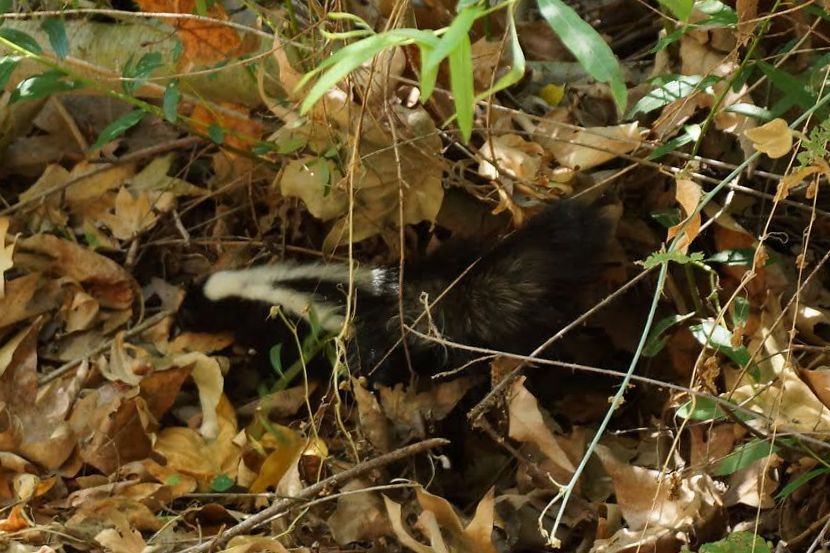
If you feed a young skunk the wrong food, you are likely to be faced with problems that include:
Nutritional deficiencies
Vomiting or diarrhea
Choking (from solid food that they aren't ready for)
Food avoidance
Bone conditions, leading to easily-broken bones
We're terribly sorry to start off with some bad news, but that's the reality that wildlife removal specialists and rehabilitators are faced with on a regular basis — skunks and skunk kits that are incorrectly cared for. These creatures seem like adorable pets, especially when people have the opportunity to adopt them at a young age. Skunks imprint on people when cared for by them, and this makes life very difficult. The animal isn't raised as a wild animal, but instead a domestic pet, but sadly, it doesn't lose any of its very wild traits.
Young skunks can't eat or drink pretty much everything you have in your kitchen. You can't feed them cow's milk, or milk substitutes. Baby formula isn't a good idea. Neither is the kind of milk that you can buy for your cat or dog. In fact, the only kind of milk that a skunk kit can drink, is that of a female skunk. Anything else you try will likely result in one of the above problems, starting with a very upset stomach.
An upset stomach is a bad enough problem to deal with when you have a baby skunk around. Parasites are commonly found on/in animals in the ‘wild', and these are passed along in feces and urine. You will also need to bear in mind that these are wild animals, no matter how long they've been in your care, so therefore won't have the same training capabilities as your cat or dog had. You probably won't have an easy time trying to get your new ‘pet' to poop in a designated place.
If the skunk is younger than five weeks, it won't even be old enough to poop on its own, requiring maternal care to encourage the behavior. What this means for you is that you'll need to stimulate the skunk to make it go to the toilet.
It won't be until the skunk reaches five or six weeks of age that it will be strong enough to handle solid food, too. How do you know when a skunk has reached five or six weeks of age? It'll be attempting to walk around, eyes will be open, and the fur will have almost or completely developed. Skunk kits aren't fully weaned — no longer needing milk or formula — until they reach seven or eight weeks of age.
If the eyes aren't open and the fur hasn't yet fully developed, it is probably less than two weeks old.
Should you help skunk kits?
In reality, you shouldn't attempt to help a young skunk that appears to be orphaned. Just because it looks orphaned, doesn't mean the mother isn't hanging around. She could be waiting for you to leave, and if you get too close to her youngster, she'll attack you to defend it.
If you come across a baby skunk that doesn't appear to have a family or mother, you should leave it alone. Make note of how the animal looks — whether or not the eyes are open or the fur and markings have started to show — and where it is, too. Keep your distance, just in case the mother comes back for it. She won't attempt to grab her young with you loitering around.
Sometimes, the mother will wait until the cover of darkness to rescue her kit. They are known for being mostly nocturnal, although it is not uncommon to see them during the day, too. Sadly, if the mother doesn't come and rescue the kit by the time darkness hits, predators are likely going to snap it up. A young skunk is an easy meal for many a passing scavenger.
Go back to the pestcontrolskunk.com home page.
Copyright 2021 - pestcontrolskunk.com
Nationwide Skunk Trapping & Removal